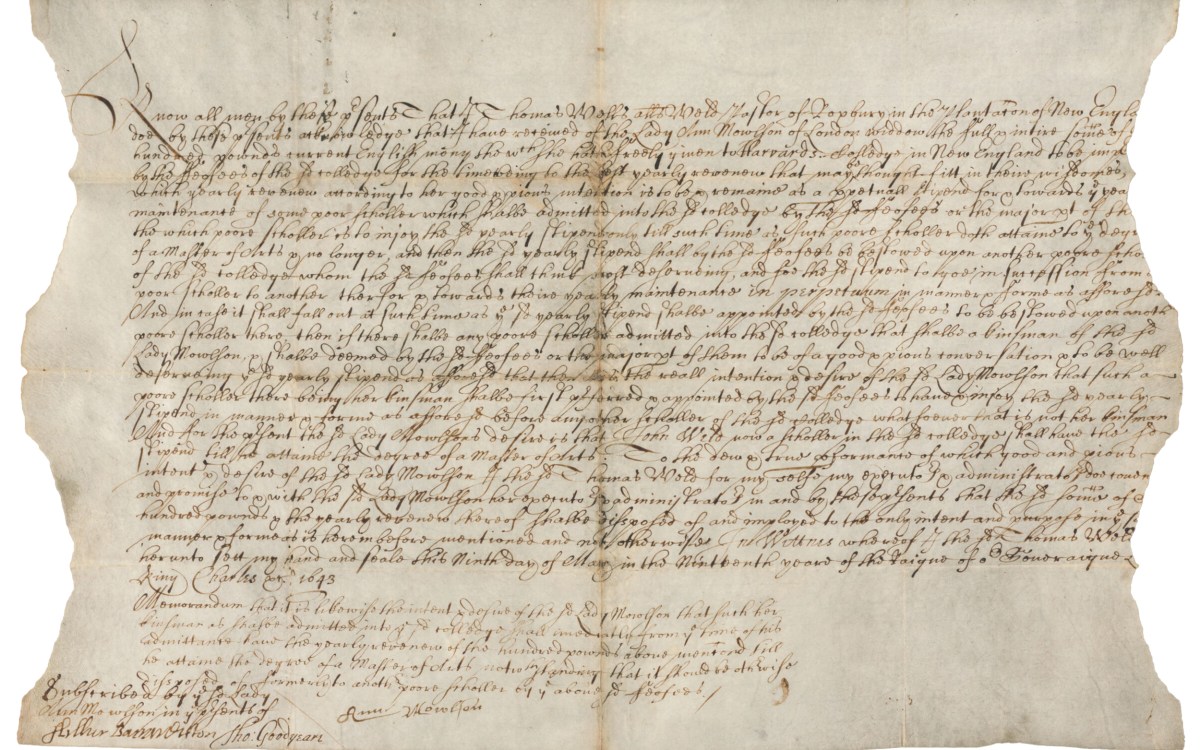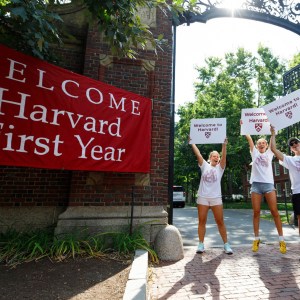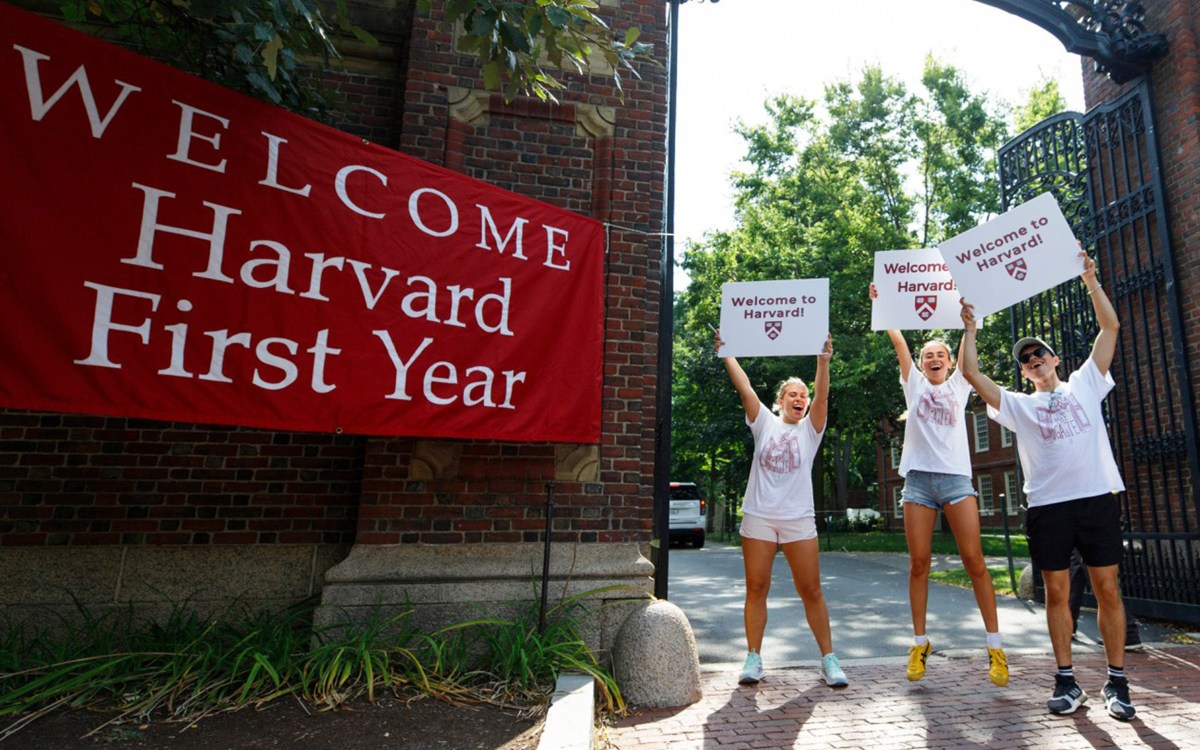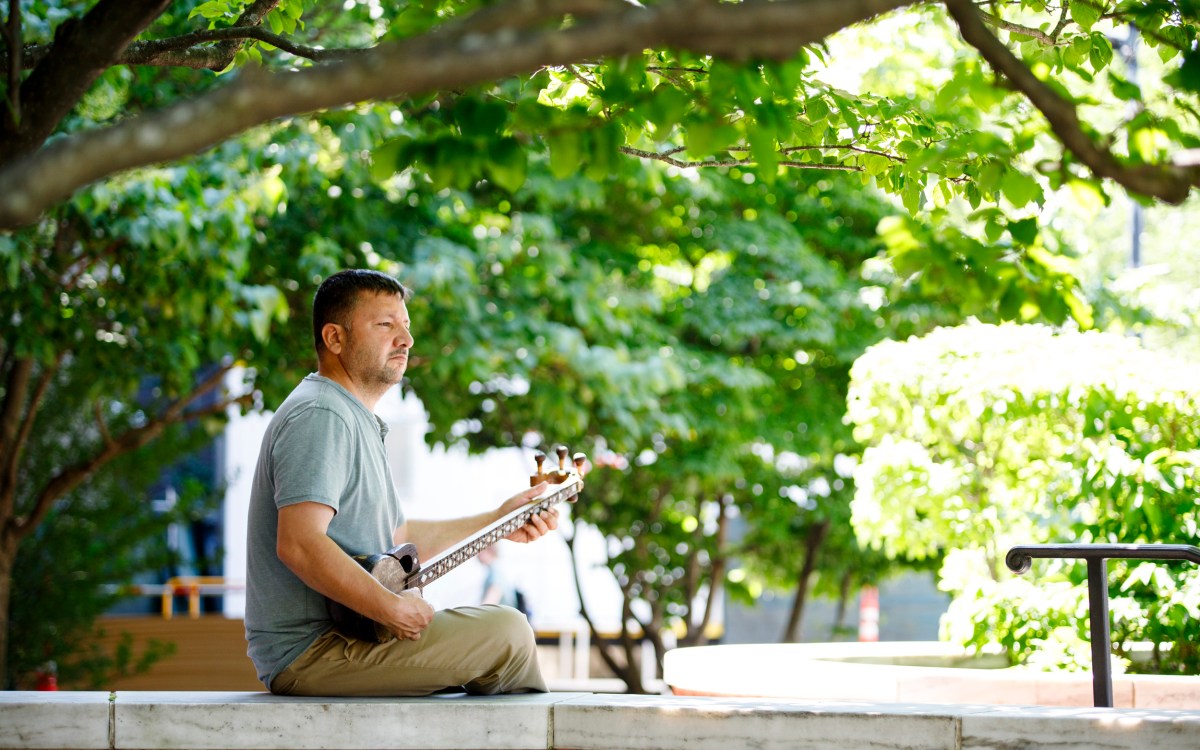Twelve Harvard affiliates named Soros Fellows:
Among most highly recognized awards for graduate study in United States
Twelve Harvard-related students are among the 30 recipients for the 2003 Paul and Daisy Soros New American Fellowship. Fellows receive up to a $20,000 stipend plus half-tuition for up to two years of graduate study at any institution of higher learning in the United States.
Now in its sixth year, the Paul and Daisy Soros Fellowships for New Americans have already become one of the most highly recognized and sought-after awards for graduate study in the United States. Nearly 1,100 naturalized citizens, resident aliens, or children of naturalized citizens completed applications this year.
“The Harvard candidates truly exemplify the kind of creative, multitalented, and extraordinarily accomplished New Americans that Paul and Daisy Soros want to honor and support through this program,” notes Warren Ilchman, director of the program.
The following Harvard-affiliated students have been named Soros Fellows:
Alejandra Casillas, 23, is a second-year student at Harvard Medical School (HMS) and a graduate of Harvard College. Casillas graduated magna cum laude in neurobiology. Her thesis, which won high honors, came out of research she did at Children’s Hospital on a condition among premature babies that frequently results in cerebral palsy. She is the child of Mexican-American parents and grew up in Lawndale, Calif. Casillas is co-chair of the Latino medical students’ organization and has represented the medical school on the University’s Graduate Council.
Jona Hattangadi is a first-year student in HMS’s New Pathways Program. She was born in Philadelphia to parents who immigrated from India, and grew up in Saudi Arabia. Hattangadi graduated summa cum laude with distinction in biology from Duke University in 2001. She also studied anthropology in South Africa, worked on interventions to end female genital mutilation in Ghana, and won a Fulbright Scholarship to Africa, where she worked with traditional healers. Hattangadi sees her future self as “a clinician-scientist in an academic setting, applying modern medical technologies to the infectious diseases that plague underdeveloped nations.” Her family lives in Orlando, Fla.
Shreya Kangovi, 23, a second-year medical student at HMS, received her B.A. in biology from Columbia College. Kangovi was born in Bangalore, India, and moved to Princeton, N.J., when she was 3. During the summer following her graduation from Columbia, she came face-to-face with the devastating medical and personal consequences of AIDS while working with doctors in Lusaka, Zambia. Kangovi wants to deliver medical care to patients in low-resource settings in America and abroad.
Kedar Mate is a second-year student in HMS’s New Pathways Program. Mate received his B.A. in modern American history from Brown University in 1999. Soon after he entered Brown, Mate teamed up with an Indian doctor working in the southern state of Kerala and organized an undergraduate research initiative – Project India – focusing on identifying HIV cases and developing a medical needs assessment. Before beginning medical school, Mate spent two years working for Partners in Health in Cambridge. At Harvard, he has developed a strategy for improving adherence to medication regimes, based on work he did in Peru.
Michael Pacold, 25, is a first-year student in the Harvard-M.I.T. Division of Health Sciences and Technology M.D. program. As a physician-scientist, he plans to direct his research toward the improvement of human health, and hopes to teach at an academic medical center. Pacold is the child of immigrants, his father from the Czech Republic and his mother from Indonesia, where she was a member of the Chinese minority. They live in the Chicago area.
Monica Santana Rosen is a first-year M.B.A. student at the Harvard School of Business. She completed her B.A. at Wesleyan University in 1997, where she majored in psychology. Rosen was born in New York City to a family from the Dominican Republic. After graduation, she became the program manager of Management Leadership for Tomorrow – a nonprofit that assists minority college students through the admission process of business school. Over the next four years Rosen took the organization to a national scope, and raised the annual budget from $500,000 to $1.2 million.
Arjun Chopra, 28, is a first-year student at Harvard Business School. He began his college career in India, earning a B.A. degree in physics from the University of Mumbai (formerly Bombay) in 1995. Seeking an education in computer science, he gained admission to the University of Texas, Austin, and earned a B.S. in computer sciences in 1998. He co-founded the Java Users Group, which not only advanced familiarity with and skills in the language on campus, but promoted employment opportunities for students at Sun Microsystems, its founder. Following graduation, Chopra was recruited as a software developer for Motive Communications, which was subsequently to become the fastest-growing private company in Austin.
Alice Wang, 24, is a second-year student at Harvard Law School, where she is a member of the Harvard Law Review and the Harvard International Law Journal. Raised in Houston by parents who emigrated from Taiwan, Wang won a National Merit Scholarship and attended the University of Texas, Austin. Following her sophomore year, Wang served as an editorial intern for The Washington Quarterly. In addition to her editorial duties, she became the journal’s youngest author when she published an 8,000-word article on “compassionate conservatism” and a shorter piece on Taiwan family law. She is committed to a career in civil rights and international human rights and plans a career as a legal scholar and practicing attorney.
Parag Pathak, 22, is a first-year Ph.D. student in economics at Harvard University. In four years at Harvard, he completed his B.A. in applied mathematics and economics, and his master’s in applied economics. Pathak was born in Corning, N.Y., to a family that emigrated from Nepal. He has committed himself to the life of a scholar/policy activist and is currently spending his first year away from Harvard at the Institut d’Economie Industrielle in Toulouse, France, for the opportunity to study under one of the world’s leading econometricians, Jean Tirole.
Ekaterina (Katya) Gladysheva, 23, is a first-year M.D. student at Stanford Medical School. She received her B.A. in history of science from Harvard in 2002. Gladysheva was born in Moscow and came with her parents to the United States when she was 14, settling in Grosse Point, Mich. She has long been committed to enhancing the quality and diffusion of medical care, coordinating a hospital-based project to support teenage mothers, and serving as an interpreter for a Chernobyl project involving children with cancer. At Stanford, Gladysheva is active as a volunteer at a student-run clinic that provides ambulatory care and referrals for uninsured patients. She plans to join an oncology lab as part of the Stanford Medical Scholars Program.
Eugene Mazo, a second-year student at Stanford Law School, was born in Moscow 29 years ago and is now a naturalized U.S. citizen. At Harvard, he earned a master’s degree in public policy at the Kennedy School of Government, where he was a William A. Starr Scholar and a Student Fellow of the Belfer Center. He received his B.A. in history from Columbia in 1995 and his M.Phil. in politics from Oxford in 1999. Upon graduation from Columbia in 1995, Mazo was the U.S.-based program coordinator for the Project on Economic Reform in Ukraine (PERU) at Harvard’s Kennedy School. Mazo plans an academic career in law with a focus on democratic governance in the emerging field of law and development.
Gad Soffer was born in Rehovot, Israel, in 1976 and is now a U.S. citizen. His father’s family were Iraqi Jews who were part of the large-scale flight into Israel during the early 1950s. His mother’s family came from various parts of the European Jewish diaspora. He looks upon being booed as an incumbent by 7,000 raucous fans looking for an upset at a Georgia high school wrestling tournament as a single moment that symbolized his success. Born without fibulas in either leg, he had had both feet amputated when he was 4. As an undergraduate at Harvard, Soffer was not only a varsity wrestler, but also highly successful academically. He designed a year’s worth of geologic excursions to locations that represented “key moments in Earth history.” The trip took him to the Outer Hebrides, the Atlas Mountains, the Sinai Peninsula, the Himalayas, and Western Australia. Soffer is now in the second year of a doctoral program in Earth and Environmental Sciences at Columbia University.




